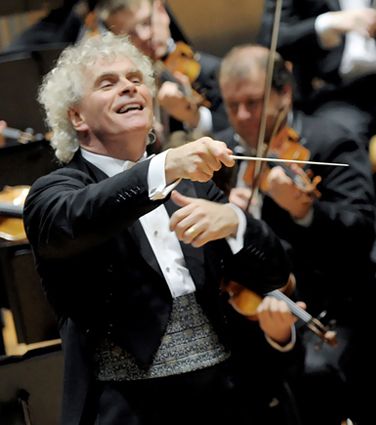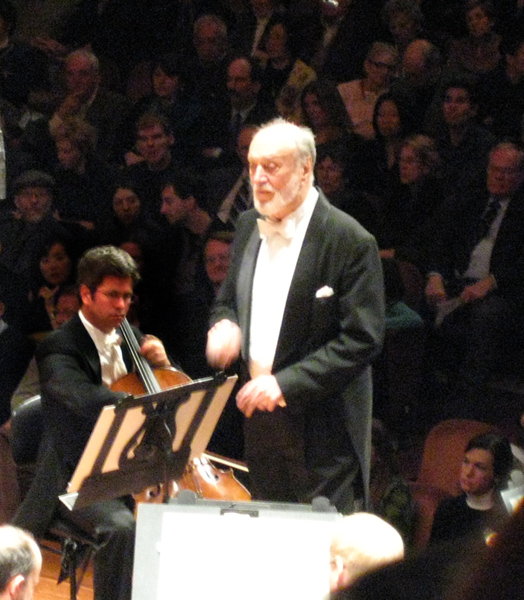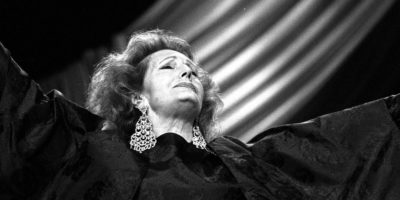20 Famous Conductors: Masters of the Symphony of Success
I just started listening to classical music and it’s opened up a whole new world for me. I never realized how complex and emotional orchestral pieces could be. The conductor is like the master of it all, directing each section of instruments with their baton and bringing the composers‘ works to life. As I read about famous conductors like Leonard Bernstein and Gustavo Dudamel, I realized they dedicate their lives to their craft.
The greats study for years, learning how to interpret scores and translate them through their orchestra. Conducting looks difficult, needing to know all the instruments and how to get the best sound from the musicians. This article features 20 of history’s most acclaimed conductors – the maestros who have conducted their careers and orchestras to success. Read on to learn about what puts them at the top of this refined art.
1. Herbert von Karajan

Image by artesitalia from Pixabay
Von Karajan was a legendary Austrian conductor known for his work with the Berlin Philharmonic and the Vienna State Opera. Over his long career, he established himself as one of the preeminent conductors of the 20th century. He was one of the most recorded conductors of all time, with over 2,000 recordings to his name. A fact that allowed audiences around the world to experience his distinctive smooth legato style.
He was a pioneer of new technologies, such as stereo sound and video recordings, that expanded the reach of classical music. He had a distinctive conducting style, often using minimal gestures and conducting with his eyes closed to better communicate with the orchestra through gesture and expression. Karajan was controversially linked as a member of the Nazi party during WWII, but musically his contributions were unmatched in the later 20th century.
2. Leonard Bernstein

Fred Palumbo, World Telegram staff photographer, Public domain, via Wikimedia Commons
Bernstein was an American conductor, composer, pianist and educator, regarded as one of the first maestros born and educated in the United States to receive worldwide acclaim. He was famous for his animated, expressive conducting style and his interpretations of composers such as Gustav Mahler. As Music Director of the New York Philharmonic for 11 years, he conducted a wide range of challenging 20th century works.
Bernstein also composed extensively for Broadway musical theater, including the hit West Side Story, as well as orchestral works, choral music and opera. As an educator, he gave numerous lectures designed to make classical music more accessible, including the Young People’s Concerts series broadcast nationwide on CBS. Bernstein’s creativity and showmanship brought classical music to a wider public.
3. Arturo Toscanini
Toscanini conducted at La Scala Milan, the Metropolitan Opera House, the New York Philharmonic and the NBC Symphony Orchestra. The Italian conductor celebrated for his intense musical interpretations and precise control of orchestra and singers. The maestro’s long career spun from the late 1800s to the 1950s.
Through these concerts and radio broadcasts, he became one of the first international celebrity conductors. His near-photographic memory and formidable ear for detail contributed to vivid, electrifying performances. Toscanini insisted on absolute faithfulness to the composer’s intent, taking minimal interpretive license.
4. Sir Simon Rattle

Monika Rittershaus, CC BY-SA 3.0, via Wikimedia Commons
Sir Rattle is one of Britain’s leading conductors on the international stage. He rose to prominence while leading the City of Birmingham Symphony Orchestra in the 1980s-90s. His eclectic repertoire ranges from Baroque to contemporary music, including championing works of John Adams, Thomas Adès and Peter Maxwell Davies.
From 2002-2018 he succeeded Claudio Abbado as Chief Conductor of the peerless Berlin Philharmonic, shaping its modern era with multimedia projects yet upholding its core Germanic tradition. Rattle’s discography reflects this breadth, from Bach and Beethoven to Ligeti and Rihm on the EMI and Sony Classical labels. Known for his curly hair and bouncing podium style, he conducts as much through gesture, body language and expressions as through baton technique to shape rhythm, phrasing and emotion.
5. Carlos Kleiber
Though he left a relatively small recorded legacy, Carlos Kleiber was regarded by many critics and fellow musicians as among the greatest conductors of his time. The son of Austrian conductor Erich Kleiber, he rejected the spotlight but was renowned for the rarity and brilliance of his appearances, especially among Germanic orchestras. These often became musical events anticipated for months or years despite his mercurial reputation. His repertoire focused largely on classical and early Romantic symphonies.
It also included a select group of opera productions like Der Rosenkavalier which he perfected through meticulous rehearsals aiming at an idealized musical vision. Yet in performance his infectious joy, freedom and spontaneity enthralled orchestras and audiences alike in an electrifying manner. For devotees, every existing Kleiber recording remains a treasure.
6. Claudio Abbado

senato.it, CC BY 3.0 IT, via Wikimedia Commons
A beneficiary of immaculate tutelage of famous conductors von Karajan and Toscanini. Abbado developed a warm resonant tone from orchestras through patient attention to phrasing, balance and dramatic pacing. Claudio Abbado was an Italian maestro widely admired for his musical insight, interpretive clarity and understated elegance on the podium. Over his five-decade career he held many of the most prestigious posts in classical music including La Scala Opera, London Symphony, Vienna State Opera, Berlin Philharmonic and Lucerne Festival.
Parallel to these roles he founded several elite orchestras like the Chamber Orchestra of Europe to perform complex 20th-century works with supreme musicianship. Trading raw power for inner light, Abbado uncovered the spiritual essence in late Beethoven, Mahler and Messiaen among others.
7. Sir Georg Solti
A Hungarian-British conductor with an impressive conducting record, including acclaimed Wagner and Strauss recordings. He was the music director of the Chicago Symphony Orchestra for 22 years, transforming it into one of the world’s finest orchestras . His rehearsals were thorough, demanding and adhered to uncompromising musical standards.
Under his leadership, the orchestra won 31 Grammy Awards. Solti also conducted at other major opera houses and orchestras including Covent Garden, the Vienna State Opera, the Salzburg Festival, the Paris Opera, and the London Philharmonic.
He was known for his powerful and energetic conducting style, earning him the nickname “the screaming skull”. Solti’s recordings of Wagner‘s Ring cycle and Strauss’s operas are considered definitive. His artistic legacy continues through the Solti Foundation that supports young conductors.
8. Gustavo Dudamel

Rey Trombetta, CC BY-SA 4.0, via Wikimedia Commons
He first rose to international fame through his dynamic tenure as music director of Venezuela’s Simon Bolivar Symphony Orchestra. A highly acclaimed Venezuelan conductor and music director of the Los Angeles Philharmonic, renowned for his infectious energy and passion on the podium. Dudamel is a product of Venezuela’s El Sistema programme, which provides free musical education to underprivileged children and which deeply influenced his musical philosophy.
As an advocate for music education, he founded the Dudamel Foundation to promote social change through music. Dudamel has guest conducted at opera houses and orchestras across Europe, Asia and the Americas. While mainly associated with the classical repertoire, he also conducts film music and promotes Latin American composers.
9. Marin Alsop
The first woman to lead a major U.S. orchestra – the Baltimore Symphony Orchestra. She has been a pioneering force for gender diversity and inclusion in the traditionally male-dominated field of classical music. Under her visionary leadership, the BSO has risen to new artistic heights through innovative programming and community engagement. Besides her groundbreaking role with the BSO, Alsop is also chief conductor of the São Paulo State Symphony Orchestra and the ORF Vienna Radio Symphony Orchestra.
She is considered a protégé of legendary conductor Leonard Bernstein, whose unwavering belief in her talent influenced her distinct musical interpretation and conducting style. As an educator, Alsop created successful initiatives such as OrchKids (targeted at Baltimore’s underprivileged children) and a Conducting Fellowship to provide women opportunities to lead orchestras.
10. Valery Gergiev

David Shankbone, CC BY 3.0, via Wikimedia Commons
He is an internationally celebrated Russian conductor primarily associated with the legendary Mariinsky Theatre and its world-class opera and ballet productions. For over 25 years, he served as the Mariinsky’s artistic director, garnering international acclaim for his vivid interpretations of Russian and European classics. He brought the Mariinsky artistic ensemble to global admiration through extensive tour performances across Europe, Asia and America.
Besides his long tenure at Mariinsky, Gergiev was principal conductor of the London Symphony Orchestra and the Munich Philharmonic. He founded acclaimed Russian music festivals like Stars of the White Nights and Moscow Easter Festival to showcase Russian culture. Due to his busy conducting schedule of hundreds of concerts annually, he conducts with a distinctive technique using a toothpick instead of a traditional baton.
11. Riccardo Muti
An eminent Italian conductor regarded as one of the greatest interpreters of the works of Verdi, Mozart and Beethoven among his vast repertoire spanning Italian opera and symphonic masterpieces. Muti rose to international prominence as the Music Director of the Philadelphia Orchestra in the 1980s and through his lauded 19-year tenure at Milan’s legendary Teatro alla Scala opera house.
He later led the Chicago Symphony Orchestra from 2010-2015, cementing his place in history as one of the few conductors who have headed all the “Big Five” American orchestras. Besides interpreting established classics, Muti has revived many forgotten Italian operatic works as the founder of the Ravenna Festival. He conducts with a rigorous and authoritative style, exacting high standards of discipline and precision from musicians.
12. Seiji Ozawa

U.S. Department of State from United States, Public domain, via Wikimedia Commons
He was a visionary Japanese conductor who attained international fame as the highly influential music director of the Boston Symphony Orchestra from 1973 to 2002, the longest serving tenure in the orchestra’s history. Seiji Ozawa was the first Asian conductor to lead a major American orchestra to continued global renown through his balance of classic interpretations and modern outlook.
He also served prestigious tenures at the Toronto Symphony Orchestra, Vienna State Opera and the Saito Kinen Orchestra in Japan. Ozawa had a flamboyant conducting style, using his entire body and flowing hair to exude emotion and dramatics to the musicians and audiences. Though demanding of orchestra discipline, his smiling, positive nature endeared him to musicians. His legacy continues through the Seiji Ozawa Music Academy and the annual Ozawa Hall concert series.
13. Zubin Mehta
A conductor from India who has worked with major orchestras worldwide, including the New York Philharmonic where he served as Music Director for 13 years. He was one of the “jet set” conductors of the 1960s and 1970s. Mehta travelled extensively and performed in various venues and countries across Europe, Israel, Asia and the Americas.
He also conducted in historic events, such as the Three Tenors concert in Rome and the Israel Philharmonic’s 50-year anniversary visit to India. Over his five-decade career, he has conducted over 3,000 concerts worldwide with a confident and charismatic style marked by a strong sense of rhythm and drama. Some highlights include his interpretations of Mahler symphonies and Indian classical music.
14. Daniel Barenboim
The Argentine-Israeli conductor, pianist, and composer is best known for his interpretations of Wagner operas and Beethoven symphonies. He has served as the music director of landmark institutions like the Berlin State Opera, La Scala in Milan and the Chicago Symphony. Barenboim is currently the music director of the Staatsoper Berlin and the West-Eastern Divan Orchestra, a youth ensemble that brings together musicians from Israel, Palestine and Arab countries to promote dialogue and harmony.
He is also a prominent advocate for peace and human rights, who has received many awards and honours for his humanitarian efforts. His versatile and intellectual conducting integrates musical insight, technical precision and philosophical perspectives, informed in part by his Jewish heritage.
15. Paavo Jarvi
An Estonian conductor who is currently the chief conductor of the Tonhalle-Orchester Zurich and the NHK Symphony Orchestra. He has also served as the artistic director and chief conductor of the Orchestre de Paris. He is also the artistic director of The Deutsche Kammerphilharmonie Bremen and the Parnu Music Festival, one of the largest summer music festivals in the Baltics. Over his career he has conducted all the major orchestras in Europe, Asia and the US.
He is especially known for his interpretations of Nordic composers like Sibelius and Nielsen as well as Russian masters including Prokofiev and Shostakovich. Jarvi is also a champion of contemporary composers such as Arvo Pärt, Erkki-Sven Tüür and Lepo Sumera. He has a clear, elegant and visually expressive style marked by keen attention to balance, texture and phrasing.
16. Esa-Pekka Salonen

Helsinki City Museum, CC BY 4.0, via Wikimedia Commons
A Finnish conductor and composer who served as the music director of the Los Angeles Philharmonic for 17 years. He ushered in a new era at the LA Philharmonic, championing contemporary classical music alongside standard repertoire. Salonen continues to be a global artistic influencer through his innovative programming and diverse artistic projects spanning dance, digital technology and visual arts.
He is currently the principal conductor and artistic adviser of the Philharmonia Orchestra in London, and the music director designate of the San Francisco Symphony. As a composer, he has created several critically praised works including a violin concerto, cello concerto, and the oratorio Wings on Wings.
17. Yannick Nezet-Seguin
A dynamic Canadian conductor and current music director of the Metropolitan Opera and the Philadelphia Orchestra, two of the most prestigious institutions in classical music. He made history as the Met Opera’s first music director of Canadian origin and Philadelphia’s first music director to grow up in the city itself. He is also the artistic director and principal conductor of the Orchestre Metropolitain in his native Montreal.
Over his illustrious career, he has conducted a vast repertoire spanning baroque, classical, romantic to contemporary works. He is particularly renowned for his operatic conducting, having collaborated with leading singers like Anna Netrebko, Joyce DiDonato, and Plácido Domingo on both staged productions and concerts.
18. Andris Nelsons
A Latvian conductor leading two of the most historic orchestras in the world – the Boston Symphony Orchestra and the Gewandhaus Orchestra Leipzig, the oldest civic concert orchestra still performing. He is also an honorary conductor of the City of Birmingham Symphony Orchestra, where he was previously the music director. Over the past decade, he has quickly established himself as one of the most sought-after conductors of his generation.
His versatile repertoire spans from early classical to avant-garde contemporary works. He is especially acclaimed for his interpretations of Russian masters like Shostakovich and Tchaikovksy. His intense, thrilling and deeply emotional performances have earned him several honors including a Grammy Award for Best Orchestral Performance in 2016.
19. Lorin Maazel
An American conductor with an illustrious seven-decade career, including landmark tenures leading the Cleveland Orchestra, New York Philharmonic, Munich Philharmonic and Vienna State Opera. He was also an accomplished composer, violinist, and festival director, boasting a profoundly versatile musical talent. He conducted over 150 orchestras in more than 5,000 performances displaying encyclopedic mastery of the repertoire covering baroque early music all the way to modern contemporary works.
Maazel also composed several operas and orchestral works including an opera based on George Orwell’s dystopian novel 1984. He was known for his technical precision, intellectually driven interpretative approach and charismatic podium manner.
20. Kurt Masur

Magic5227, Public domain, via Wikimedia Commons
A German conductor recognized for making monumental musical and humanitarian contributions as the Kapellmeister of two storied institutions – the New York Philharmonic and the Leipzig Gewandhaus Orchestra. As music director of the New York Philharmonic, he led the orchestra on several international tours and made numerous acclaimed recordings of composers ranging from Beethoven, Mendelssohn to 20th century greats like Prokofiev.
However, his 26-year tenure leading the Gewandhaus Orchestra, where titans like Mendelssohn and Brahms also held the baton before him, is considered his career-defining achievement. Furthermore, his role as mediator and leader during the peaceful revolution that led to the fall of the Berlin Wall in 1989 cemented his legacy as humanitarian. He led world premieres of many contemporary works and made definitive recordings of Russian masters including Shostakovich and Tchaikovsky.
The conductor is like the master of it all, directing each section of instruments with their baton and bringing the composers’ works to life. After this read about famous conductors you will realized they dedicate their lives to their craft. The greats study for years, learning how to interpret scores and translate them through their orchestra. Conducting looks difficult, needing to know all the instruments and how to get the best sound from the musicians. This maestros have conducted their careers and orchestras to success.
Planning a trip to Paris ? Get ready !
These are Amazon’s best-selling travel products that you may need for coming to Paris.
Bookstore
- The best travel book : Rick Steves – Paris 2023 – Learn more here
- Fodor’s Paris 2024 – Learn more here
Travel Gear
- Venture Pal Lightweight Backpack – Learn more here
- Samsonite Winfield 2 28″ Luggage – Learn more here
- Swig Savvy’s Stainless Steel Insulated Water Bottle – Learn more here
Check Amazon’s best-seller list for the most popular travel accessories. We sometimes read this list just to find out what new travel products people are buying.










